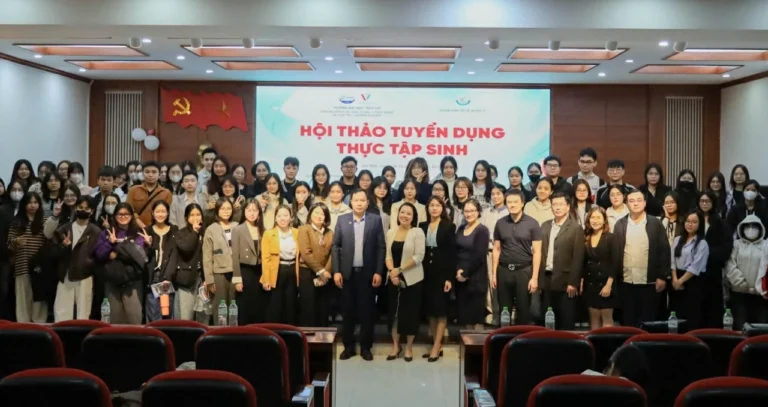In recent years, Vietnam has become an attractive destination for foreign companies in the electronics and semiconductor industries. However, this rapid development has put significant pressure on the labor supply, especially as high-tech industries require a skilled workforce with specialized technical expertise. In this context, labor importation, including bringing back skilled Vietnamese workers from abroad, is emerging as a strategic solution to meet the growing demand for qualified personnel.
1. Labor Situation in the Electronic Components and Semiconductor Industries
Currently, Vietnam’s electronics and semiconductor sectors are experiencing rapid growth, with export turnover reaching $57.3 billion in 2023. Major electronics companies, from Intel to Samsung, have heavily invested in Vietnam, establishing it as a crucial manufacturing hub for the Asian region. Yet, with such a growth rate, the labor challenge has become significant as the domestic workforce cannot meet the demand, especially in terms of quality and expertise. Additionally, the semiconductor sector is booming, with Vietnam planning to scale up chip production and semiconductor devices to align with Industry 4.0 needs. Global semiconductor production capacity is expected to increase by 6.4% in 2024, with Asia—particularly China, Taiwan, and South Korea—dominating the market. To stay competitive, FDI companies in Vietnam are also compelled to invest heavily in technology and human resources.
2. Labor Importation – A Solution to the Workforce Dilemma?
Labor importation is currently regarded by many companies and experts as one of the most effective solutions to address the workforce shortage. Beyond the traditional sense of importing foreign labor, in Vietnam, it also involves attracting highly skilled Vietnamese professionals from abroad to serve critical industries like electronics and semiconductors. This strategic approach helps Vietnam quickly bolster its quality workforce to meet the sector’s high demands.

Additionally, human resource service companies like GLA HR play a vital role in providing professional labor supply. GLA HR’s services help FDI companies reduce the burden of recruiting and training technical labor. They offer end-to-end solutions from recruitment to personnel management, enabling companies to maintain a stable workforce and focus on technology development and productivity.
3. Challenges of Labor Importation
While labor importation presents numerous opportunities, it also comes with challenges. First, imported labor incurs higher costs compared to domestic workers, from recruitment expenses to compensation packages. Second, the integration and retraining process for foreign workers can take time, especially when language and cultural differences pose significant barriers.
Despite labor importation 's benefits, labor importation has its drawbacks. Over-reliance on imported labor could hinder the sustainable growth of the domestic industry. Experts caution that without investing in local workforce training, Vietnam risks becoming overly dependent and losing its long-term competitiveness.
Companies face higher costs in recruiting and managing imported labor. Additionally, language and cultural barriers can impact work efficiency and productivity. Firms must invest in training and integration programs for foreign workers to optimize outcomes.
4. Sustainable Workforce Development Solutions
To comprehensively address the labor issue, Vietnam needs to develop a holistic human resource strategy. The government and FDI companies can collaborate to enhance high-tech vocational training programs for students and workers. Furthermore, policies that incentivize skilled Vietnamese professionals working abroad to return are crucial. This valuable workforce can significantly improve labor quality and drive Vietnam’s industrial advancement to new heights.
Partnership programs with universities, vocational schools, and international educational institutions are also essential to provide specialized training courses tailored to the high-tech industry’s needs. This not only enhances workforce skills but also gradually reduces dependence on imported labor, creating a sustainable human resource foundation for Vietnam.
Join our Zalo group for HOT JOB opportunities: https://zalo.me/g/osiedw964


